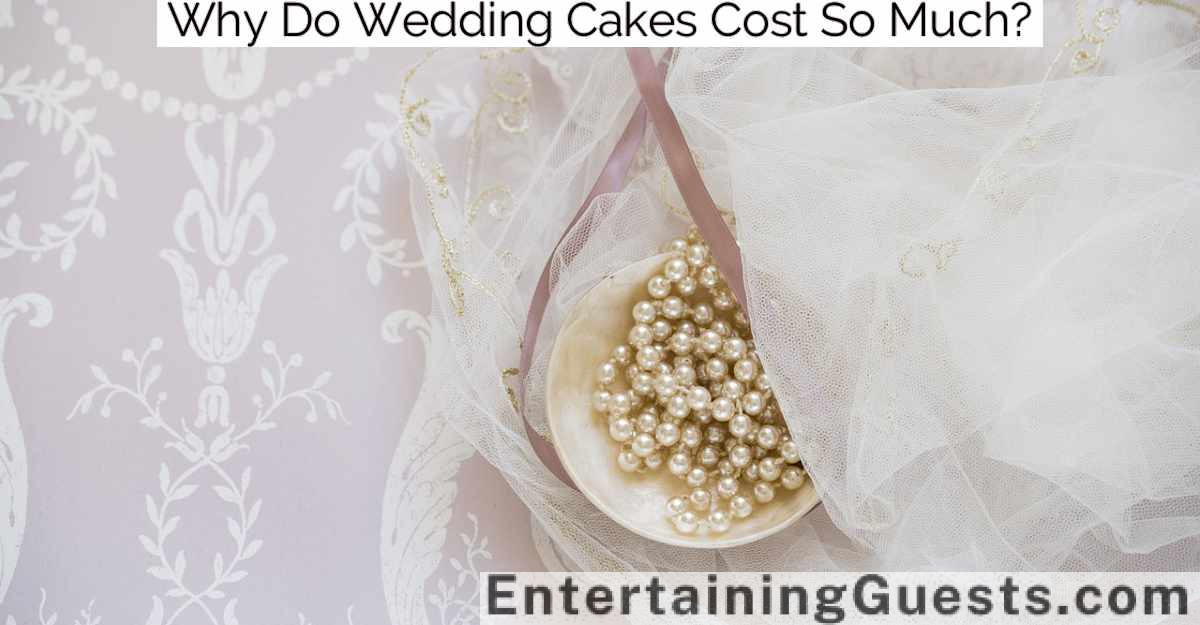Wedding cakes are pricey because they blend art and culinary craft, showcasing intricate designs and premium ingredients that require advanced skills and time to perfect. Each cake is tailored to reflect the couple’s tastes and wedding theme, involving extensive consultations, design trials, and meticulous construction. Skilled bakers use labor-intensive techniques like airbrushing and hand piping, which elevate both the cost and allure. The use of top-quality ingredients like organic flours and artisan chocolates further drives the price up. Specialty tools, detailed craftsmanship, and careful delivery contribute to the overall expense. Discovering these elements offers insight into the thorough effort behind each spectacular cake.
Key Takeaways
- Custom designs and personalization require extensive consultations and skilled craftsmanship, increasing costs.
- Premium ingredients, such as organic flour and exotic flavors, elevate the price.
- Labor-intensive techniques like hand-piping and sugar art demand high levels of expertise and time.
- Specialized delivery and setup services ensure the cake’s integrity, adding to the overall expense.
- Market demand and seasonal variations influence pricing strategies, often leading to higher costs during peak wedding seasons.
Complexity of Design
As wedding trends evolve, the complexity of cake designs greatly influences the overall cost. Modern couples often seek unique, intricate cakes that stand out, not just in flavor but in their aesthetic appeal. These sophisticated designs can incorporate elements such as multiple tiers, unconventional shapes, and a variety of textures that require advanced skills and considerably more time to create.
The use of high-end ingredients also plays an essential role in the pricing. For instance, organic or exotic components, which are frequently used to enhance both the taste and the exclusivity of these creations, can be costly. Additionally, the incorporation of edible gold leaf, sugar art, and handmade fondant flowers adds to the complexity and, consequently, the price.
Techniques such as airbrushing, sculpting, and intricate piping demand the expertise of seasoned cake artists whose skills are often reflected in the cost. The labor-intensive nature of these techniques means that hours, sometimes days, are spent crafting a single cake.
Moreover, the logistics of delivering and assembling these elaborate cakes safely at venues can further increase the cost. The need for special handling and transportation equipment to protect such intricate designs is essential, ensuring the cake’s arrival in pristine condition, which is paramount for any wedding celebration.
Customization Options
Customization options for wedding cakes greatly influence their overall cost.
The complexity of the design, the choice of high-quality or exotic ingredients, and the use of specialized artisanal techniques can all escalate expenses.
Couples should consider these factors carefully as they plan their wedding budgets and seek quotations from bakers.
Design Complexity and Detail
The complexity of a wedding cake’s design and the intricacy of its details greatly influence the overall cost. Today’s couples often seek unique, bespoke creations that reflect their personal style and the theme of their wedding, pushing the boundaries of traditional cake design.
These customizations can include everything from intricate hand-piped lace, sugar flowers that mimic real blossoms in detail, to sculpted fondant figures and multiple tiers with varying shapes and sizes. Each element requires significant time, skill, and patience from the cake artist.
Moreover, the trend of incorporating advanced techniques such as edible gold leaf, airbrushing, or 3D printing technology adds to the complexity. These methods aren’t only labor-intensive but also require the baker to have specialized skills and possibly invest in expensive equipment.
Clients also often request a preview or sketch of the cake beforehand, which adds to the preparatory work and time spent on consultations. As the demand for highly personalized cakes continues to grow, the cost reflects not just the raw materials, but the artistry and labor involved in bringing a couple’s vision to life.
This level of customization guarantees that no two cakes are exactly alike, but it also means a higher price tag.
Choice of Ingredients
Beyond design and technique, the choice of ingredients plays a considerable role in tailoring a wedding cake to individual tastes and dietary preferences.
Modern couples are increasingly opting for customization options that reflect their unique lifestyles and values, which often includes a careful selection of specific ingredients. This attention to detail doesn’t just cater to taste but also addresses dietary restrictions and ethical considerations, contributing to the higher cost of wedding cakes.
Here are some key ingredients that can impact the price:
-
Organic Ingredients: Choosing organic fruits, nuts, and flours can considerably increase the cost due to their higher farming standards and reduced availability.
-
Specialty Flours: Gluten-free or almond flour, necessary for guests with dietary restrictions, often come at a premium.
-
Exotic Flavors and Fillings: Incorporation of less common, imported ingredients like matcha, passion fruit, or high-quality vanilla beans can drive up the price.
-
Artisanal Add-ons: Handmade chocolate shards, edible gold leaf, or organic edible flowers for decoration aren’t only trendy but also add to the overall cost due to their craft and sourcing.
Each choice reflects a commitment to quality and personalization, making the cake not just a dessert, but a statement of the couple’s distinctiveness.
Artisanal Techniques Employed
Artisanal techniques in wedding cake design allow bakers to create unique, highly personalized masterpieces that reflect each couple’s style and story. These techniques involve a mixture of traditional craftsmanship and modern innovation, ensuring that each cake isn’t just a dessert but a pivotal element of the wedding celebration.
One prevalent technique is hand-piping, which demands steady hands and an artistic eye to create intricate lace patterns and detailed borders that wrap beautifully around each tier. Sculpting is another highly sought-after skill, enabling cake artists to mold fondant and marzipan into lifelike flowers, figures, and even detailed scenes that resonate with personal significance for the couple.
Additionally, the advent of edible metallic paints and 3D-printing technology for sugar elements has set a new bar for customization, allowing designs that were once deemed impossible. Here’s a closer look at some popular options:
| Technique | Description |
|---|---|
| Hand-Painting | Using food-safe paints to add vibrant, detailed art directly onto the cake. |
| Sugar Flowers | Crafting realistic flowers from sugar that often rival the beauty of their real counterparts. |
| Edible Gold Leaf | Applying thin sheets of gold for a touch of luxury and elegance. |
These techniques not only enhance the visual appeal but also the value, justifying the high costs associated with artisanal wedding cakes.
Premium Ingredients
Incorporating premium ingredients can greatly elevate the flavor and allure of your wedding cake. As couples increasingly opt for bespoke tastes and high-quality options, it’s crucial to understand why these ingredients contribute to the overall cost.
Here’s a breakdown:
-
Organic Flour: Unlike conventional flour, organic flour comes from crops grown without synthetic fertilizers or pesticides, often enhancing the cake’s flavor profile and appealing to health-conscious guests.
-
Madagascar Vanilla: This sought-after vanilla type is prized for its rich, creamy flavor and complex aroma. It’s sourced from Madagascar, known for producing some of the world’s highest quality vanilla beans.
-
Belgian Chocolate: Renowned for its superior quality, Belgian chocolate provides a depth of flavor that’s unmistakably luxurious. Its smooth texture and rich taste are due to more stringent production standards and traditional processing methods.
-
Free-range Eggs: Eggs from free-range hens are often considered higher in quality due to the hens’ healthier living conditions and diet. They contribute to a richer, more natural taste in cakes.
These premium components not only enhance the sensory experience of a wedding cake but also reflect a commitment to quality that many couples desire for their special day.
Labor-Intensive Techniques
Labor-intensive techniques, such as hand-piping and intricate sugar art, greatly drive up the cost of a wedding cake due to the skill and time they require. These methods aren’t just about applying decoration; they’re forms of edible art that demand precision and artistic flair. A cake artist must have extensive training and experience to master these techniques, which adds to their service value.
For instance, creating lifelike sugar flowers involves coloring, shaping, and assembling delicate petals one by one—a process that can take hours for a single bloom. Similarly, hand-piping, whether it’s lace patterns, filigree, or rosettes, requires steady hands and an eye for symmetry and detail. These personalized touches are what set bespoke cakes apart in the world of wedding decor.
Moreover, as trends in wedding cakes evolve, the demand for complex, show-stopping designs continues to grow. Couples are looking for unique elements that reflect their personal style and theme of the wedding, pushing cake decorators to innovate and perfect even more elaborate techniques.
This trend awareness not only elevates the aesthetic appeal of the cake but also the overall labor costs involved in its creation.
Time-Consuming Process
The time-consuming process of creating a wedding cake begins with extensive design consultation hours, where bakers work closely with couples to capture their vision accurately.
This personalized service requires detailed craftsmanship, as decorators meticulously bring intricate designs to life.
Additionally, bakers often prepare multiple test batches to guarantee the flavor profiles meet the couple’s expectations, adding further to the overall cost and time investment.
Design Consultation Hours
Design consultations, often spanning several hours, play an essential role in translating a couple’s vision into a bespoke wedding cake. These meetings aren’t just sit-downs; they’re intensive sessions where every detail is hashed out to guarantee the final product reflects the couple’s unique story and aesthetic preferences.
The time invested in these discussions justifies part of the cake’s cost, reflecting not just the baker’s time but also their expertise in bringing concepts to life.
Here are some key elements that are typically covered during these consultations:
-
Theme Alignment: Guaranteeing the cake’s design aligns perfectly with the wedding’s overall theme, from color schemes to motifs.
-
Flavor Selections: Tasting and selecting from a variety of flavors and fillings that not only taste delicious but also appeal aesthetically.
-
Size and Structure: Determining the appropriate size based on the guest count, and discussing structural considerations for tiered designs.
-
Personal Touches: Incorporating elements that have personal significance to the couple, such as custom toppers or specific decorative details.
These consultations demand a high level of attention to detail and personalization, which in turn contributes to the overall cost of the wedding cake. By understanding these aspects, couples can appreciate the value behind the price tag.
Detailed Craftsmanship Required
Following the design consultation, the actual creation of the wedding cake involves meticulous craftsmanship, a time-consuming process that demands precision and artistry. Each layer, each decoration must be perfectly aligned and executed, reflecting the couple’s unique style and the overall theme of the wedding.
| Step | Description |
|---|---|
| Sculpting | Cake layers are carefully sculpted to guarantee uniformity and stability, essential for the cake’s structural integrity. |
| Icing Application | A smooth base coat of icing is applied, requiring steady hands and a keen eye to achieve a flawless surface. |
| Decorative Elements | Details like piping, flowers, or intricate designs are handcrafted. This can include rolling fondant, modeling chocolate, or crafting sugar flowers—techniques that necessitate a high skill level. |
| Assembly | The final assembly involves stacking layers, often with internal supports, and arranging decorative elements meticulously. |
This process isn’t just about baking; it’s an art form that incorporates the latest trends and techniques to deliver not just a cake, but a centerpiece that captivates and delights. The expertise required to execute such detailed work justifies the premium cost, guaranteeing that each wedding cake is a masterpiece of edible art.
Multiple Test Batches
Often, bakers conduct multiple test batches to guarantee the chosen flavors and textures meet the couple’s expectations and align with contemporary culinary trends. This meticulous process isn’t just about perfecting a recipe; it’s an integral part of creating a personalized and memorable wedding cake that stands out.
The reasons why multiple test batches are essential include:
-
Flavor Perfection: Each couple has unique preferences. Bakers tweak recipes to perfect the flavor profile, ensuring every layer of cake offers a taste that’s both delightful and personalized.
-
Texture Optimization: The texture of a cake can make or break its overall appeal. Whether it’s airy sponges or dense buttercreams, achieving the right consistency demands trial and error.
-
Aesthetic Trials: Alongside flavor and texture, the visual aspect of the cake is critical. Bakers experiment with different decoration techniques and styles to find the best match for the wedding’s theme and aesthetics.
-
Ingredient Interactions: Different ingredients react in various ways when combined. Test batches help bakers understand these interactions, ensuring there are no surprises on the big day.
This time-consuming process underscores the dedication and artistry behind each bespoke wedding cake, contributing considerably to the overall cost.
Expertise of the Baker
The expertise of the baker plays an essential role in determining both the quality and the uniqueness of a wedding cake. Seasoned bakers bring years of experience and training, mastering delicate techniques from intricate sugar flowers to perfectly smooth fondant. They’re adept in translating couples’ visions into edible realities, often incorporating the latest trends like ombre frosting or vegan options into their designs.
Crafting a wedding cake isn’t just baking; it’s an art form. The baker’s proficiency guarantees that the flavors and textures achieve a perfect balance—a moist sponge, rich filling, and a finish that’s both beautiful and delicious. They must also be skilled in structural engineering to guarantee multi-tiered creations can withstand the duration of the event without compromising their aesthetic appeal.
Moreover, experienced bakers invest in continuous education to keep up with industry standards and innovations. They attend workshops and culinary courses, which add to the cost but guarantee a superior product. Their expertise can transform simple ingredients into a centerpiece that captivates all senses.
Therefore, when you’re paying for a wedding cake, you’re not just paying for the ingredients or the time it takes to bake it; you’re investing in the baker’s artistry and the assurance that your cake will be a highlight of your celebration.
Delivery and Setup
While the baker’s expertise guarantees a cake’s visual and gustatory appeal, the process of delivering and setting up the cake at the venue is equally important to its success. This stage isn’t merely about transporting an item; it involves meticulous planning and execution to guarantee the cake arrives in perfect condition and is presented beautifully.
Here are four essential aspects of delivery and setup that often contribute to the overall cost:
-
Specialized Transportation: Wedding cakes require careful handling during transit. Bakers often use refrigerated or climate-controlled vehicles to maintain the cake’s integrity, which prevents melting or decoration damage.
-
Time Coordination: Delivery teams must work on a tight schedule. They need to coordinate with venue staff and event planners to guarantee they can set up the cake without disrupting the flow of the event. This often means working outside regular business hours, which can increase costs.
-
Setup Expertise: Setting up a wedding cake isn’t as simple as placing it on a table. It often involves constructing multi-tiered structures securely and artistically arranging decorations that were transported separately to avoid damage.
-
Emergency Preparedness: Professionals always come prepared for last-minute fixes. They might bring extra frosting, flowers, or even spare parts of the cake in case unexpected issues arise during transportation or setup.
Each of these elements requires skill and experience, justifying the significant part of a wedding cake’s price dedicated to delivery and setup.
Specialty Tools and Equipment
Creating exquisite wedding cakes requires specialized tools and equipment that go beyond standard baking utensils. The intricacy of modern wedding cake designs demands precision tools such as airbrushes for delicate, gradient color applications, and adjustable turntables that guarantee even, meticulous decoration. Higher-end materials like silicone molds and impression mats are essential for creating detailed textures and patterns that are often seen in today’s trendsetting wedding cakes.
Bakers also invest in specialized fondant smoothers and rolling pins designed to handle large expanses of icing without tearing. These tools, while enhancing the aesthetic appeal of the cake, come with a significant price tag.
Additionally, temperature-controlled environments are vital for the storage and handling of components like chocolate ganache and Swiss meringue buttercream, which are sensitive to heat and humidity. This often necessitates advanced refrigeration systems which further add to the cost.
Moreover, the ongoing trend towards custom cake stands and displays requires resources for either purchasing or custom-making these pieces to match the specific themes or color schemes of weddings. Each of these investments contributes to the higher pricing seen in the market for wedding cakes, reflecting both the craftsmanship involved and the specialized equipment used.
Wedding Industry Markup
As couples plan their perfect wedding day, they often encounter a significant markup in the wedding industry, particularly in the area of cake costs.
This premium is partly due to the specialized services that top-tier cake designers offer, which require exceptional skills and tools.
Additionally, the high demand for custom-designed cakes, especially during peak wedding seasons, drives up prices, reflecting both the complexity of designs and the urgency of client requests.
Specialized Service Premium
Services labeled as ‘wedding-specific’ often carry a premium due to their specialized nature and the high demand in the industry.
When it comes to wedding cakes, this specialized service premium is reflected in various aspects of production and delivery, each tailored to guarantee that the cake not only tastes exceptional but also looks picture-perfect and aligns with the couple’s unique theme.
This premium isn’t just about the ingredients, but the thorough service that comes with it.
Here’s a breakdown of why wedding cakes command a higher price:
-
Custom Design Expertise: Cake designers spend hours consulting with couples, sketching designs, and perfecting details to create a personalized masterpiece that reflects the couple’s style and the wedding’s theme.
-
Exclusive Ingredients: Many wedding cakes feature rare ingredients, organic products, or flavors imported from specific regions, enhancing both taste and exclusivity.
-
Complex Techniques: Techniques such as sugar art, hand-piping, and intricate fondant work require skilled artisans who often have years of specialized training and experience.
-
Logistical Coordination: Delivering a wedding cake involves meticulous planning to guarantee it arrives in perfect condition, often requiring specialized transportation and on-site assembly.
These factors contribute to the higher costs associated with wedding cakes, reflecting the specialized service that couples expect for their special day.
High Demand Effects
High demand for wedding-related services often leads to significant markups in pricing, a trend clearly evident in the wedding cake sector.
As couples seek to make their special day memorable, the surge in demand for unique and lavish wedding cakes allows bakeries to increase their prices. This industry operates on the economics of scarcity; the more desirable a particular style or baker becomes, the higher the cost can soar.
This pricing dynamic is exacerbated by the seasonal nature of weddings. Peak wedding seasons typically see a spike in demand for all wedding services, including cakes. During these times, bakeries can face backlogs, pushing couples to book well in advance and at premium rates. The competition isn’t just among couples; it’s also between bakeries to secure business during these lucrative periods.
Moreover, the influence of social media and reality television has amplified expectations and expanded the market for extravagant wedding cakes. Prospective brides and grooms are now more likely than ever to request intricate designs they’ve seen online, further driving up demand.
As a result, the wedding cake sector not only sees higher prices but also a more competitive and dynamic marketplace.
Custom Design Costs
Custom design requests in the wedding cake industry often carry a hefty markup, reflecting both the skill involved and the unique personalization desired by couples. This is particularly evident when you consider the range of elements that influence the cost, making each cake not just a dessert but a centerpiece of the celebration.
Here are four critical factors contributing to the markup:
-
Expertise and Labor: Crafting a custom-designed wedding cake requires a high level of expertise. Cake artists spend years perfecting their craft. Each cake involves hours of labor, planning, and execution, which greatly adds to the cost.
-
Materials and Ingredients: High-quality, often organic ingredients are used to guarantee the best taste and appearance. Specialty materials like fondant, gum paste for intricate decorations, and imported flavors can be pricey.
-
Equipment and Tools: Specialized tools are necessary for detailed designs. Investment in this equipment, which might only be used for certain designs, impacts the overall cost structure.
-
Consultation and Design Time: Extensive consultations to capture the couple’s vision, sketching designs, and adjustments also consume considerable time, which is factored into the pricing.
Understanding these components helps couples appreciate the value behind the price tag of their dream wedding cake, guaranteeing it’s as special as their big day.
Seasonal Price Variations
Wedding cake prices often fluctuate with the seasons, reflecting the varying costs of ingredients and demand throughout the year.
During peak wedding seasons, particularly spring and summer, prices tend to rise. This isn’t just due to increased demand; it’s also linked to the higher costs of certain seasonal ingredients. For example, if a bride desires fresh berries on her cake in December, she’ll find that winter prices for these summer fruits are substantially higher due to import costs or greenhouse production expenses.
Conversely, in the fall and winter, when weddings are less frequent, bakeries may lower their prices to attract more business. This period often sees a shift in flavor preferences and ingredient availability, influencing both design and cost. Cakes featuring rich, hearty flavors like pumpkin or apple can be less expensive in these seasons, as these ingredients are abundantly available and therefore, cheaper.
Moreover, some bakeries implement dynamic pricing models, adjusting their rates not only seasonally but also weekly or even daily, based on order volume and ingredient cost fluctuations. This pricing strategy helps them manage resources efficiently while maintaining a steady flow of orders throughout the year, ensuring that every couple can have their dream cake without breaking the bank.
Frequently Asked Questions
Can Dietary Restrictions Affect the Cost of a Wedding Cake?
Dietary restrictions can indeed impact the cost of a wedding cake. Specialty ingredients often come at a premium, requiring additional labor and expertise from bakers to guarantee they meet specific dietary needs.
Are There Eco-Friendly Options for Wedding Cakes?
Yes, there are eco-friendly options for wedding cakes. Bakers use organic, locally-sourced ingredients and sustainable practices to minimize environmental impact. They’re becoming popular among couples who prioritize eco-consciousness in their wedding planning.
How Far in Advance Should I Order a Wedding Cake?
She should order her wedding cake at least six months in advance, especially if she’s opting for a custom design. This timeline allows bakers to plan and execute without rushing the details.
Do Cake Tastings Typically Cost Extra?
Cake tastings often incur additional fees, as they require the baker’s time and resources to prepare multiple flavor options. Most bakeries charge for this service, but some may deduct the fee from the final order.
Is a Deposit Required When Ordering a Wedding Cake?
Yes, bakeries usually require a deposit when ordering a wedding cake. This guarantees the client’s commitment and helps cover initial costs for ingredients and labor. The deposit’s typically a percentage of the total cost.
Conclusion
Wedding cakes, with their intricate designs and customizable options, naturally command higher prices.
Crafted with premium ingredients and specialized tools, these edible masterpieces require hours of labor-intensive techniques.
Furthermore, the wedding industry’s standard markup, coupled with seasonal price fluctuations, adds to the cost.
As trend-aware experts note, the expense reflects not just the cake but the artistry and logistical effort involved, ensuring that each cake is as unforgettable as the wedding day itself.







